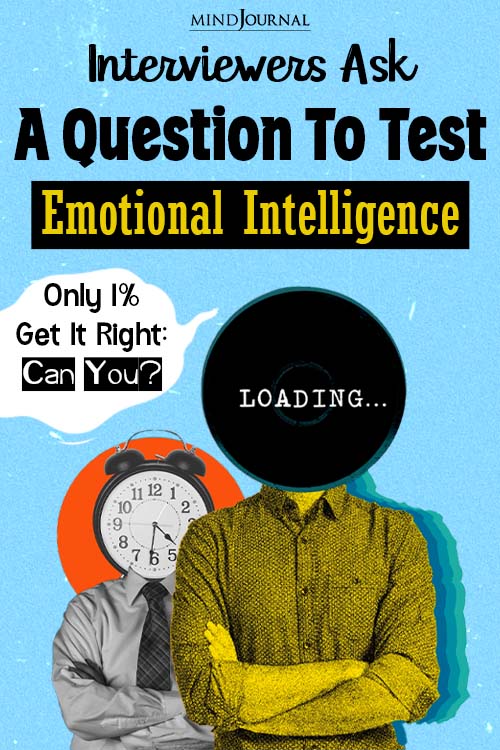Ever faced an interview question that left you scratching your head? Discover the questions to test emotional intelligence test and find out if you have what it takes!
Job interviews can be nerve-wracking, with candidates anxious over qualifications, experience, and communication skills.
But there’s another element employers are increasingly focusing on emotional intelligence. This often comes to light through particular interview questions to test emotional intelligence, and in a TikTok video, life coach @fearlesswoman.co unveils a tricky scenario to gauge your EQ.
Logical vs. Emotional Intelligence – How Would You Answer Questions To Test Emotional Intelligence?
Imagine you’re a man cruising in a two-seater convertible, basking in luxury. As you drive, you spot a bus stop with three individuals.
- The Beautiful Woman: The first person is a stunning woman. At a glance, you feel an intense connection and envision a future together, even contemplating marriage and children.
- The Job Interviewee: Next to her is a man with a briefcase, he looks desperate to make it to an important job interview. His entire future hangs in the balance, and failure could lead to fatal consequences for him and his family.
- The Sick Person: The third person appears seriously ill and urgently needs medical attention. Time is of the essence, and the situation could turn critical.
Related: What Is Emotional Intelligence And Why Is It An Important Skill?
The Question Interviewers Ask: What Will You Do Now?
Most people instinctively lean towards taking the sick person to the hospital – a logical response. However, this choice, while compassionate, may not showcase high emotional intelligence. The surprising ‘right’ answer lies in a different direction.
So, How Can You Show Emotional Intelligence And Answer This EQ Test
The true test of emotional intelligence is to give up your prized convertible to the person rushing to the job interview. Let them drive the sick person to the hospital while you stay back with the woman who captivated your heart.
Related: How Emotionally Intelligent Are You? QUIZ
Difference Between Emotional Intelligence vs. Logical Problem-Solving
Emotional intelligence (EQ) is distinct from intelligence quotient (IQ). While IQ assesses logical problem-solving skills, EQ delves into understanding and responding to emotions effectively.
In social settings, relying solely on logic might lead to ‘right’ decisions without considering broader repercussions.
The crux of emotional intelligence is finding solutions where everyone wins. While acing a job interview may hinge on your IQ, maintaining lasting relationships in the workplace requires a high EQ. In the end, it’s about fostering an environment where everyone benefits.
Your Personal Response To This EQ Test Is A Matter of Perspective

Related: 14 Signs You’re An Emotionally Intelligent Person
If you didn’t nail the ‘right’ answer to the questions to test emotional intelligence, don’t be upset. Only 1 in 100 do. Your choice to prioritize the sick person showcases your inherent goodness.
It simply means you share a mindset with many others who lean towards compassion. After all, being a good person matters, and true emotional intelligence lies in actions where everyone emerges victorious.
Next time be mindful of the question interviewers ask. All the best!










Leave a Reply